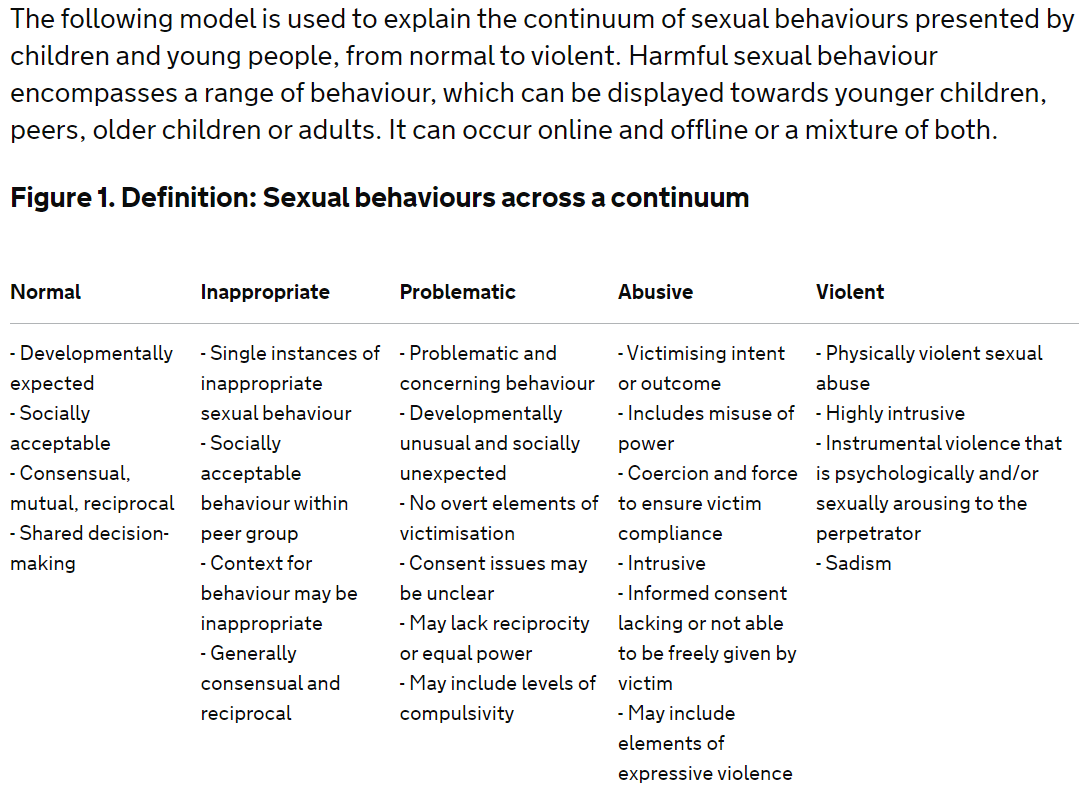- Home
- Continuous Professional Development (CPD)
- Curriculum Hubs
- RSHE Hub - Free Resources for Schools
- Ofsted 'Review of sexual abuse in schools and colleges'
Ofsted 'Review of sexual abuse in schools and colleges'
'The default assumption should be this: sexual harassment is affecting a substantial proportion of children in any given school or college'. Amanda Spielman, Ofsted Chief Inspector
Ofsted was asked by the government to carry out a rapid review of sexual abuse in schools and colleges, following the publication of thousands of testimonies of sexual abuse on the website Everyone’s Invited. The report has now been published and the watchdog has warned that sexual harassment has become “normalised” among school-age children. In the OFSTED review of sexual abuse in schools and colleges, published on 10th June 2021, children and young people told inspectors that sexual harassment and online sexual abuse are such a routine part of their daily lives they don’t see any point in challenging or reporting it.
Read the review here.
As a designated DfE RSHE Hub for primary and secondary schools, South Farnham School has supported over 800 teachers from 600+ schools across the south of England this year to deliver this statutory, specialist area of the curriculum, dealing with complex and sensitive issues. We have continued to deliver this phase specific training, updated to focus on Ofsted's review of sexual abuse, to consider a whole-school approach to addressing issues and creating a culture where sexual harassment is not tolerated.
A presentation and discussion on the report by the Chartered College of Teaching can be viewed here.
If you have membership of The Key, the article, 'How to prevent peer-on-peer abuse' can be read here.
Headteacher Update, 'Preventing peer-on-peer abuse' can be read here.
Ofsted's review of sexual abuse in schools found a number of reasons why pupils weren't reporting experiences of sexism and sexual harassment. These reasons include how pupils:
- Don't see the point in reporting 'lower level' incidents because they're commonplace
- Are worried the next steps would be out of their control
- Think they wouldn't be believed or that they’d be blamed, so don't feel confident asking for support
- Are concerned they'd be ostracised by their peers or branded a 'snitch' for getting someone into trouble

Source: Hackett, S, ‘Children, young people and sexual violence’ in ‘Children behaving badly? Exploring peer violence between children and young people’, 2010.
- The DfE’s statutory RSHE guidance outlines how your curriculum should now cover these issues. If you weren’t ready to introduce this curriculum in September 2020, you should have introduced it by the beginning of the summer term at the latest.
- The PSHE Association’s programme of study for key stages 1 to 5 also suggests what you should cover when teaching about relationships in PSHE.
- Child Exploitation and Online Protection (CEOP) Command has developed resources to help you support young people with developing confident, healthy approaches to relationships and the internet. These include videos, toolkits and activities that can be used in lessons or assemblies or shared with parents.
- Childnet International has an online safety PSHE toolkit with films and lesson plans exploring issues such as cyber-bullying, sexting, peer pressure and self-esteem.
- The NSPCC has a range of safeguarding teaching resources including lesson plans on personal safety, healthy relationships and online bullying. Its “Speak out Stay safe” programme also includes interactive assemblies and workshops on safeguarding for pupils in key stages 1 and 2.